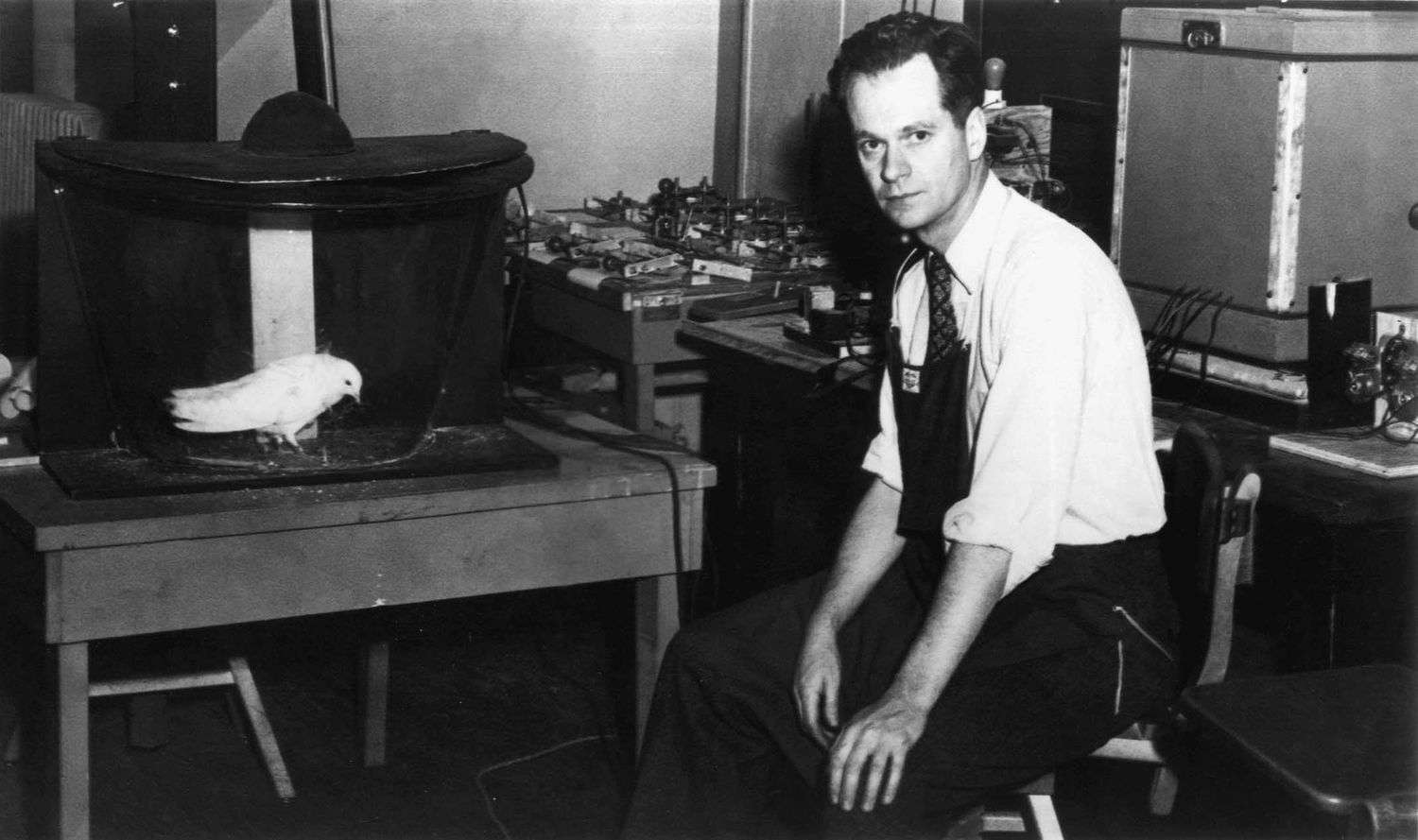Though we can cite instances of scientists and philosophers “doing” psychology as far back as ancient times, and psychological questioning picked up during the Enlightenment period in Europe, psychology did not emerge as a formal field of study and experimentation until around the 1830s. Nevertheless, psychology is a uniquely modern field, always growing, shifting, and adding to its scope. Most people have taken a psychology class, whether in college or high school, but many are not aware of how present psychology is in many aspects of our lives.
Considering a degree in psychology? Visit Our Psychology Hub, where you’ll find the best psychology colleges and universities, career information, interviews with top psychologists, influential scholars in the field of psychology, great books, a history of the discipline, and more.
What’s the value of influence in the modern world? Learn about influence networks.
We also offer rankings of the best degrees available using our innovative ranking methodology that avoids bias by analyzing billions of data points to provide an objective scoring system. With our rankings, you’ll be able to find the best online undergraduate psychology programs or the best advanced specialized programs such as organizational psychology.
Psychology is so much more than just the “study of the mind.” The most influential people in psychology dive deep into niche studies, often crossing disciplines, and producing results that affect concepts as fundamental as the language we use in regular speech, and as overarching as how we understand memory and cognitive behavior. Even if you have no interest in the field beyond your 101 experience, psychology has plenty to tell you about yourself.
The following 25 people are the most influential working in psychology today. Through professorship, writing and publication, editing journals and anthologies, activism, and public discourse they have all played a major role in molding the state of the field, as well as law, technology, education, media, and your daily life. Some are certainly not here without controversy.
In what follows, we look at influential psychologists over the last decade. Based on our ranking methodology, these individuals have significantly impacted the academic discipline of psychology within 2010-2020. Influence can be produced in a variety of ways. Some have had revolutionary ideas, some may have climbed by popularity, but all are academicians primarily working in psychology. Read more about our methodology.
Note: This isn’t simply a list of the most influential psychologists alive today. Here we are focused on the number of citations and web presence of scholars in the last 10 years. There are other highly influential scholars who simply haven’t been cited and talked about as much in the last 10 years, whereas some new faces have been making a splash in the news, speaking events, and publishing, publishing, publishing. Our AI is time sensitive. To find some of the big names you might have expected to see here, we encourage you to use our dynamic ranking system and check influence over the past 20 and 50 years.
Top Influential Psychologists
2010-2020
Note: The time-specific links above take you to rankings that dynamically change as our AI learns new things!
3.
Daniel Kahneman
Daniel Kahneman
(1934 – )
Tel Aviv, British Mandate of Palestine
Areas of Specialization: Cognitive Biases, Behavioral Economics, Prospect Theory, Loss Aversion
Daniel Kahneman is an Israeli-American psychologist and economist who is currently Professor Emeritus of psychology and public affairs at Princeton University’s Woodrow Wilson School. Kahneman is world-famous for his groundbreaking work on the psychology of judgement and decision making. He won the Nobel Prize in Economics for his work on human rationality in economic theory in 2002.
Kahneman, along with his colleague Amos Tversky, is widely known for his work on the cognitive basis of human error stemming from heuristics and biases, which humans use as ordinary aids in decision making. Kahneman’s work (with Tversky) led to his development of prospect theory in the late 1970s. More recently, Kahneman published a popular version of his lifetime of work on errors in cognition in his 2011 best-seller Thinking, Fast and Slow. Kahneman is also known for his work in hedonic psychology, a subfield of psychology focuses on what makes us happy (or unhappy), and leads to fulfillment.
In addition to winning the Nobel Prize, Kahneman has been the recipient of numerous awards and distinctions. He was elected a member of the National Academy of Sciences in 2001. In 2007, he received the American Psychological Association’s Award for Outstanding Lifetime Contributions to Psychology, recognizing his significant contributions to the field of Psychology. For two consecutive years, in 2011 and 2012, he made the Bloomberg 50 most influential people in global finance.
Academic Website
4.
Albert Bandura
Albert Bandura
(1925 – 2021)
Mundare, Alberta, Canada
Areas of Specialization: Cognitive Psychology, Social Psychology, Social Cognitive Theory
Before his passing in July 2021, Albert Bandura held the title of David Starr Jordan Professor Emeritus of Social Science in Psychology at Stanford University. A top name in social psychology, Bandura was born in Mundare, Alberta, Canada, and earned his bachelor of arts at the University of British Columbia in 1949. He soon moved to the U.S. and earned his MA in 1951 and PhD in 1952 at the University of Iowa. Bandura began teaching at Stanford in 1953.
Bandura is among the most cited psychologists in the (relatively) short history of the field. He is considered the founder of social learning theory, and groundbreaking model for understanding human social development. From his famous “Bobo doll experiment”, Bandura developed his theory of how humans imitate the behaviors they observe in others as a kind of “social learning,” i.e. learning what they can and cannot do in social settings. In particular, Bandura was interested in how children learn from the behaviors they observe in adults, especially aggression. This eventually led to the development of social cognitive theory, which examines how social learning affects cognition itself, not just behavior. This has had profound effects on everything from the field itself, to education, entertainment, rehabilitation, and training.
Notable works from Bandura include Self-Efficacy in Changing Societies, Self Efficacy: The Exercise of Control, and Moral Disengagement: How People Do Harm and Live with Themselves.
For his work, Bandura has received numerous awards and honors, including fellowship with the American Academy of Arts and Sciences, the Award for Distinguished Scientific Contributions from the American Psychological Association, the Thorndike Award for Distinguished Contributions of Psychology to Education, the Lifetime Achievement Award from the Association for the Advancement of Behavior Therapy, and several handfuls of honorary doctorates.
Personal Website
5.
Jordan Peterson
Jordan Peterson
(1962 – )
Edmonton, Alberta, Canada
Areas of Specialization: Social Psychology, Personality
Jordan Peterson is a Canadian clinical psychologist. He is Professor of Psychology at the University of Toronto, Canada. Peterson became a household name in Canada, the United States, and indeed around the world for his invocation of free speech rights regarding the use of preferred pronouns by students at the University of Toronto. He received his bachelor’s degrees in Political Science and Psychology from the University of Alberta, and his Ph.D. in Clinical Psychology from McGill University.
Since 2016, when Peterson began broadcasting on YouTube his principled opposition to Canada’s Bill C-16, “An Act to amend the Canadian Human Rights Act and the Criminal Code,” Peterson has risen from an academic professor doing research and teaching clinical psychology to a media sensation. He lectures and gives talks regularly on topics such as abnormal, social and personality psychology and has attracted a large following online (numbering in the millions) for his content on personal growth, taking responsibility, as well as the significance of traditional belief systems for psychological health and growth. His book 12 Rules for Life: An Antidote to Chaos, which came out in 2018, was a best-seller. Peterson is also known for his critical stance toward political correctness, which he views as potentially corrosive to open dialogue and healthy society.
Peterson was also a post-doctoral researcher at McGill University and an associate professor of psychology at Harvard University, where he performed research on rises in aggression from drug and alcohol abuse. His intellectual interests range widely; he is also interested in the rise of totalitarian governments and has studied the Cold War period in the West as well as the totalitarian regimes of the Soviet Union and Nazi Germany. He counts among his major influences the pioneering psychologist Carl Jung.
Academic Website
Professional Website
6.
Christopher French
Christopher French
(1956 – )
Areas of Specialization: Parapsychology, Pseudoscience, Cognitive Biases
Christopher French is a British psychologist who specializes in the study of the paranormal, referring to events depicted in popular culture and lore that do not have normal or scientific explanations. French is Professor of Psychology at Goldsmiths, University of London, as well as head of the University of London’s Anomalistic psychology research unit.
Chris French has treated a variety of phenomena considered outside science, including extrasensory perception and even astrology. On his popular Skeptic Zone podcast, French has explained that he once held beliefs about paranormal phenomena, but later found psychological explanations for the prevalence of beliefs in such events compelling. In particular, he has performed experiments showing large placebo effects with subjects using healing crystals and other icons of new age and other belief systems in pop culture. He has also studied claims such as alien or UFO abductions, telepathy, ghosts, and faith healing.
French’s course at Goldsmiths and Birkbeck College in the UK is titled Psychology, Parapsychology and Pseudoscience. In addition to his popular podcast, he is former Editor-in-Chief of The Skeptic magazine. He is also a Chartered Psychologist and a Fellow of the British Psychological Society. His book, Anomalistic Psychology: Exploring Paranormal Belief and Experience came out in 2014.
French is well-known in British living rooms, having made regular appearances on ITV’s Haunted Homes program.
Academic Website
Professional Website
7.
James Alcock
James Alcock
(1942 – )
Central Butte, Saskatchewan, Canada
Areas of Specialization: Parapsychology, Social Psychology, Psychotherapy
James Alcock is a skeptic, a Canadian educator, and Professor of Psychology at York University in Canada. Alcock is most known for his critical stance towards parapsychology, the study of psychic phenomena like extrasensory perception (telepathy, precognition, clairvoyance, psychokinesis, and psychometry), as well as other purported unexplained reports like near death experiences. Alcock received his Bachelor of Science degree in physics at McGill University, and his Ph.D. at McMaster University.
Alcock’s career in psychology has been largely an attempt to root at pseudoscientific claims that, if accepted, would become a scientific study in psychology. Notably, he is a Fellow and Member of the Executive Council for the Committee for Skeptical Inquiry. He is on the Editorial Board of The Skeptical Inquirer magazine, where he also frequently contributes. Alcock has been so outspoken and successful as a critic of the paranormal that in 1999 a panel voted him one of the top skeptics of the 20th century! Perhaps ironically, he is also an accomplished amateur magician.
Alcock’s book Parapsychology-Science Or Magic?: A Psychological Perspective, published in 1981, as a major factor in psychologist Chris French’s “conversion” to skepticism about paranormal claims in terms of accepted science in psychology.
Academic Website
9.
Girishwar Misra

(1951 – )
Gorakhpur, Uttar Pradesh, India
Areas of Specialization: Social Psychology, Indian Psychology
Girishwar Misra is one of the leaders in the emerging field of Indian psychology, where he serves currently as Vice Chancellor of Mahatma Gandhi Antarrashtriya Hindi Vishwavidyalaya, India. Prior to his role as Vice Chancellor, Misra was a Fulbright Fellow at Swarthmore College and at the UnUniversity of Michigan. He received his MA and Ph.D. in Psychology in Deen Dayal Upadhyay Gorakhpur University in India.
Misra is perhaps best known for his contributions to social science and psychology research. Notably, he served as editor of Psychological Studies, a journal of the National Academy of Psychology, India for fifteen years, until the end of 2015. He is also considered a central figure in Indian psychology, which is a field that attempts the systematic study and development of ideas originally from traditional Indian religious and cultural traditions. One interesting area in Indian psychology is the study of now well-known activities such as yoga, meditation, and Ayurveda, the latter the study of alternative medicines from Indian culture, often used for general wellness.
Misra received the National Award for Social Science from the Government of Madhya Pradesh, India, in 2009.
Academic Website
12.
Richard Wiseman
Richard Wiseman
(1966 – )
Luton, England
Areas of Specialization: Applied Social Psychology, Psychology of Performance
Wiseman is Professor of the Public Understanding of Psychology at the University of Hertfordshire in the United Kingdom. Wiseman is known for his insightful and often humorous commentary on human psychology, and his books have been translated into over 30 languages. He is also (along with Chris French and James Alcock) a critic of parapsychology, which he counts as pseudoscience. He received a degree in Psychology from University College London and later received his Ph.D. in Psychology from the University of Edinburgh in Scotland.
Wiseman is involved in a number of projects that, broadly, seek to entertain and educate the public on psychological findings and data. In particular, he has worked with the BBC in a series on lying; his book, The Luck Factor, looks at the role of attitude in attributions of luck (whether we say we’re lucky, or unlucky); as Fellow of the Committee for Skeptical Inquiry he has been active in debunking claims of the paranormal.
Wiseman has an interesting past, having been a street performer in the UK before beginning his academic studies in psychology. He’s also an amateur magician, and launched a website dedicated to publishing jokes and finding “the world’s funniest” joke. His research has appeared in over 150 T.V. programs. He is a regular on BBC Radio 4.
Academic Website
Professional Website
16.
Janet Helms

( – )
Kansas City, Missouri, USA
Areas of Specialization: Theory of Racial Identity, Culture and Ethnicity, Gender Psychology, Self and Identity
Janet Helms is a research psychologist currently August Long Professor of Counseling Psychology at Boston College. She received her B.A. as well as M.A. in Psychology at the University of Missouri–Kansas City. She earned a Ph.D. in Psychology from Iowa State University.
Helms’ work in psychology focuses on her theory of racial identity, which seeks to explain how race, culture, and gender contribute to personality as well as counseling styles. Notably, she also researches issues with mental health and race or gender. When she first started in research psychology, these topics did not receive as much attention as she subsequently brought to them. Helms has been a thought leader in not just contributing to but, in a sense, creating this topic in official research psychology.
In 2006, Helms won the Distinguished Contributions to Education and Training in Psychology, awarded by the American Psychological Association. She sits on the boards of several influential publications in psychology, including the Journal of Psychological Assessment, the Journal of Counseling Psychology, and The Counseling Psychologist.
Academic Website
17.
Daniel Gilbert
Daniel Gilbert
(1957 – )
Ithaca, New York, USA
Areas of Specialization: Social Psychology, Social Inference, Dffective Forecasting
Daniel Todd Gilbert currently holds the title of Edgar Pierce Professor of Psychology at Harvard University. Previously, Gilbert worked at the University of Texas at Austin. Gilbert completed his undergraduate studies at the University of Colorado Denver, and earned his Ph.D. at Princeton University in 1985.
Gilbert is a social psychologist straddling the roles of academic psychologist and popular author. His work focuses on emotion, and he is best known for his 2006 book Stumbling on Happiness, as well as several TED talks, essays in popular magazines and newspapers, and the NOVA series This Emotional Life. Gilbert’s work often focuses on the concept of “affective forecasting,” or how we perceive and predict our future emotional states, and how these perceptions affect our behavior and decisions.
For his work, Gilbert has received numerous honors and awards, including the Distinguished Scientific Award for an Early Career Contribution to Psychology from the American Psychological Association, and the William James Fellow Award from the Association for Psychological Science. He is also a member of the American Academy of Arts and Sciences.
Academic Website
Professional Website
19.
Philip Zimbardo
Philip Zimbardo
(1933 – )
New York City, New York, USA
Areas of Specialization: The Lucifer Effect, Time Perspective Therapy, Social Intensity Syndrome
Philip Zimbardo holds the title of Professor Emeritus at Yale University, and previously taught at Columbia University, New York University, and Yale University. In 1954, Zimbardo earned his BA in psychology, sociology, and anthropology from Brooklyn College, and completed his MS and Ph.D. in psychology at Yale University in 1959.
Zimbardo is best known for his infamous 1971 Stanford prison experiment, and what he termed “The Lucifer Effect,” discussed in the book of the same name. The experiment was received with controversy and criticism, both in terms of ethics and scientific rigor. Regardless, Zimbardo’s findings argue, in summary, that imbalances of power between people lead to corruption and abuse. Later, amid the fallout of the 2004 Abu Ghraib Prison torture scandal, Zimbardo published The Lucifer Effect: Understanding How Good People Turn Evil, examining the issue and reflecting what he found in his experiment. The book on the subject was popular among mainstream audiences, and remains a regular point of discussion in both college psychology and ethics courses. Other published works by Zimbardo include The Time Paradox which discusses the psychological science of time.
For his work, Zimbardo has received a variety of honors and awards, including the Gold Medal for Lifetime Achievement in the Science of Psychology from the American Psychological Foundation, and an honorary doctorate degree from SWPS University in Warsaw.
Academic Website
Professional Website
21.
Jean Decety
Jean Decety
(1960 – )
France
Areas of Specialization: Cognitive Psychology, Social Decision Making
Jean Decety is an American and French neuroscientist who is currently the Irving B. Harris Distinguished Service Professor at the University of Chicago. His area of specialty is in cognitive neuroscience and psychology, including social, affective, and developmental neuroscience. Decety received three advanced degrees in neuroscience, cognitive psychology, and biomedical engineering from Claude Bernard University Lyon 1 in France. He also received his Ph.D. from Bernard.
Decety’s research focuses on the neurobiological and psychological mechanisms involved in social decision making, and motivations for moral behavior such as empathy and attributions of justice. In particular, he explores the evolutionary underpinnings of empathy, including how it develops in young children. For his work on morality, he is interested in the phenomenon of generosity as it develops in early childhood and is expressed in a society. Importantly, Decety believes that technologies like functional neuroimaging (fMRI, for example) can help illuminate how traditional concepts like morality (empathy, generosity, or justice) are manifest in the brain. Decety’s work integrates psychological research with modern neuroscientific techniques and research, and is regarded as an exciting frontier in psychology (and neuroscience).
Decety has been the founder and editor-in-chief of the journal Social Neuroscience. He also serves on the editorial boards of Development and Psychopathology, The European Journal of Neuroscience, The Scientific World Journal, Frontiers in Emotion Science, and Neuropsychologia. Decety along with colleague John Cacioppo created the Society for Social Neuroscience in 2010.
Academic Website
22.
Daryl Bem

(1960 – )
France
Areas of Specialization: Social Psychology, Self-Perception Theory
Daryl Bem holds the title of Professor Emeritus at Cornell University. Previously, Bem has held professorial roles at Stanford University, Harvard University, and Carnegie Mellon University. Bem was initially a student of physics, and earned his BA in the field at Reed College. Bem soon went to Massachusetts Institute of Technology, but decided to change his career path to psychology after becoming inspired by the Civil Rights Movement.
An influential figure in social psychology, Bem is perhaps best known for developing self-perception theory. Through this approach, Bem theorizes on how our attitudes and perceptions of ourselves, not just in relation to others, but within ourselves. Bem argues that our own behaviors alter our self-perceptions, but through a kind of cognitive dissonance, we reconcile these altered views as part of a self-perception that we have always held. Moreover, Bem is known for two controversial views, both of which were generally criticized for lacking scientific rigor. The first is his exotic becomes erotic theory, which attempts to explain non-heteronormative sexual attraction from childhood developments. The second is his views on the legitimacy of PSI and ESP (parapsychology), which he defended in his “Feeling the Future” article in the Journal of Personality and Social Psychology.
Bem is a fellow of the American Psychological Association, as well as the Association of Psychological Science Parapsychological Association.
Academic Website
Professional Website



